What should patients with cerebral infarction pay attention to in terms of diet?
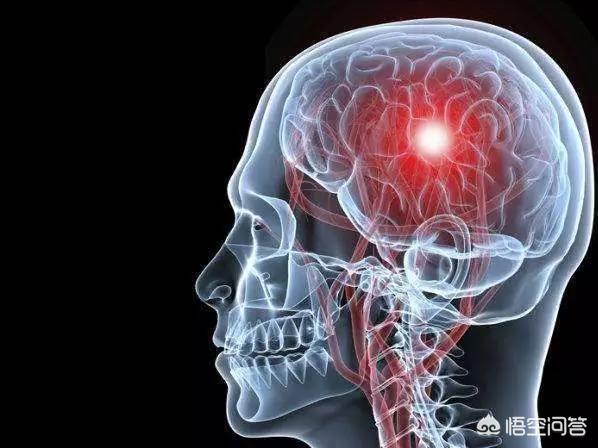
With the progress of life, the aging of the population, as well as the youthfulness of the disease, we are surrounded by more and more patients with cerebral infarction, this disease has brought a lot of harm and inconvenience to the patients and their families, "disease enters by the mouth" this proverb is well known, the cerebral infarction patients should pay attention to diet.
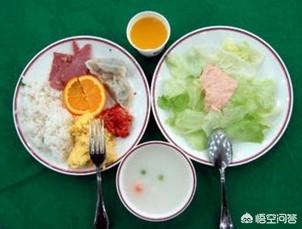
Low-salt diet: especially cerebral infarction combined with hypertension patients should strictly control the intake of salt, should avoid the use of salt pickles, especially for the elderly more like the use of pickles, excessive salt intake, the impact on blood pressure is very large, for low-salt diet can not be accepted by the patient, can try a few days of salt-free diet, may be easy to accept the low-salt diet.
Low-sugar diet: Especially patients with diabetes mellitus combined with cerebral infarction should have strict blood sugar control, as diabetes mellitus can further increase the risk of cerebral infarction. A low glycemic diet requires reducing the intake of foods such as sugar cubes, carbonated beverages, sugar-containing pastries, and starchy staple foods, and replacing them with high-protein foods and vegetables.
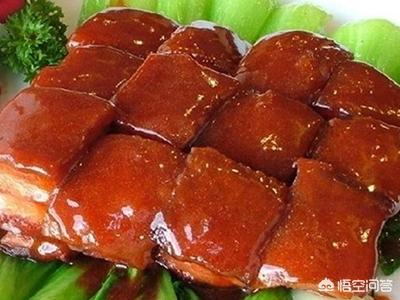
Low-fat diet: especially for people with cerebral infarction combined with hyperlipidemia, hyperlipidemia can aggravate the degree of atherosclerosis and increase the risk of another cerebral infarction, should eliminate the use of animal offal, fried food, animal oil, etc., and try to consume vegetable oils and vegetable food.
In addition, bad habits in life, smoking, drinking, dietary favoritism, smoking and hyperhomocysteinemia can trigger cerebral infarction of independent factors, in life should quit smoking, eat more vitamin-rich foods, alcohol can be moderate drinking, but should not be more. In conclusion, patients with cerebral infarction should have a low-salt, low-fat and low-sugar diet, but patients and their family members should not be too anxious to over-control the patient's diet, which may lead to malnutrition, and they should also strengthen their physical exercise.
Answer: Bao Qian, M.S., M.A.
Welcome to Apricot Island for more interesting health facts!
Patients with cerebral infarction suffer from serious consequences due to the rapid development of their condition at the onset of the disease, therefore, controlling the high-risk factors of cerebral infarction is of great significance in preventing the reoccurrence of cerebral infarction. In addition to taking medication as recommended by your doctor, you should pay attention to the following points in your diet:
1. Tobacco and alcohol. Must quit smoking and drinking.
2. Sodium. A major risk factor for stroke is high blood pressure, and limiting sodium is an important measure of diet: if your blood pressure is above 180mmHg or 120mmHg, you can have a short-term salt-free diet and add it gradually as your blood pressure drops, with no more than 5 grams.
3. Total amount of food. Under the guidance of a dietitian or doctor, set the total amount of food for the day, if the local conditions do not have this you can choose to eat 70% to 80% full.

4. Protein. Protein intake: in addition to the combination of chronic renal insufficiency, 1.0 grams per kilogram of ideal body weight per day; fish or soy protein is better. We usually eat food contains protein, if you conversion is not clear, it is okay, the average person 2-3 two lean meat per day should not be a problem.
5. Food fat. Food cholesterol and saturated fatty acid intake should be controlled, try not to eat fat. Every day, each person frying vegetables with oil limited to 20 grams or less.
6, fruits and vegetables. Eat more fruits and vegetables, generally recommended daily about a pound of vegetables (weight before cooking), about half a pound of fruit, to ensure that the table colorful, can prevent cardiovascular and cerebrovascular disease taking into account the prevention of cancer.

7. There are also some special reminders to eat less food, such ashigh sodium food: Pickles, squash, salted fish, salted meat, pickled food, curd, etc;high-fat food: animal offal, fatty meats, cakes, etc;High cholesterol foods: animal offal, egg yolks (advice: eating one egg yolk a day will not affect cholesterol levels), squid, fish roe, anchovies, fish meat loaf, fish roe, shrimp skin, shrimp, crab roe, ark shell meat, butter, etc.
Follow Dr. Lee and you talk about health, bring you more and more practical health knowledge!
What should patients with cerebral infarction pay attention to in terms of diet? It is mainly related to the patient's condition, past history, and co-medication.
First, the cause of most patients with cerebral infarction is atherosclerosis, then this part of the patient's diet should pay attention to low sodium, low animal fat, pay attention to balanced nutrition, eat more vegetables and fruits, eat more whole grains and high fiber foods, eat more deep-sea fish and nuts, and control the total daily calorie intake.
Second, patients with cerebral infarction with dysphagia should pay attention to eating and drinking slowly, and should not drink water and other liquids with straws to avoid choking. If choking on water is serious, swallowing function training should be carried out. If choking is still serious after training, gastrostomy can be considered.
Third, patients with cerebral infarction who have difficulty in chewing can eat semi-liquid food, which can be cooked and broken up with various nutrients, and then eaten.
Fourth, patients with gastrointestinal dysfunction, if only general gastrointestinal function decline, you can eat more dietary fiber-rich food, more activities, appropriate to take to promote gastrointestinal dynamics drugs. If it is a serious gastrointestinal dysfunction, you can consider extra-gastrointestinal nutrition.
Fifth, patients who have had a cerebral infarction often need to take statin drugs, if they are taking atorvastatin, simvastatin, lovastatin and lipids Kang, be careful not to eat grapefruit and do not drink grapefruit juice.
Feel free to follow and like this article if you found it useful!
For patients with cerebral infarction, scientific and reasonable diet is also very crucial to the auxiliary role played by the treatment of the disease. So what should patients pay attention to in their diet at this time?
1, pay attention to limit the intake of fat. In daily meals, patients should reduce the total amount of fat, increase unsaturated fatty acids, avoid animal fat intake as much as possible, in order to reduce the chance of endogenous cholesterol synthesized by their liver. In daily cooking, avoid animal fats and choose vegetable fats whenever possible.
2, control the total calorie. If in their own diet, the patient has controlled the total fat intake, at this time its blood lipids will often be reduced accordingly, and for obese or overweight patients, their physical condition will also decline, thus to reduce the chances of developing this disease, the patient at this time it is best to achieve or maintain an ideal quality of body, in order to better assist the physiological function of the internal organs of the whole body.
3. Increase protein appropriately. As the amount of fat in the diet of patients at this time decreased, and therefore should be appropriate to increase the intake of protein. Patients at this time can combine their own preferences, choose to eat a certain amount of soy products such as tofu, dried beans, in order to reduce the body's blood cholesterol and blood viscosity.
Because the harm of cerebral infarction disease is more serious, so patients must cause their own vigilance at this time, pay attention to do a good job of dietary care, in order to avoid the occurrence of some unnecessary harm.
Instructor: Chen Yufei, Attending Physician, Department of Neurosurgery, General Hospital of Tongxiang Group Company.
He has been engaged in neurosurgery for more than ten years and has rich clinical experience, specializing in the treatment of craniocerebral trauma, as well as hypertensive cerebral hemorrhage and other diseases.
If you find this article useful, please feel free to like or recommend it to your friends and follow [Medlink Media].
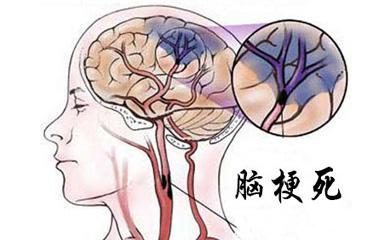
What should be the diet of patients with cerebral infarction?
In my opinion, patients with cerebral infarction should do the following in their diet.
1. Limit fat intake. To reduce the total amount of fat in the daily diet, increase polyunsaturated fatty acids, reduce animal fats to reduce the synthesis of endogenous cholesterol by the liver, cooking without animal fats and oils, but with vegetable fats and oils, such as soybean oil, peanut oil, corn oil, etc., the daily dosage of no more than 25 grams. Limit cholesterol in food to no more than 300 milligrams per day.
2. Control total calories. If the dietary control of total fat intake, blood lipids will decline, obese or overweight patients will also decline in body mass, patients are urged to achieve or maintain the ideal body mass, so that the physiological function of the internal organs of the whole body is beneficial.
3. Increase protein appropriately. Due to the decline in the amount of dietary fat, protein should be increased appropriately. Can be provided by lean meat, skinless poultry, can eat more fish, especially sea fish, every day to eat a certain amount of soy products such as tofu, dried beans, to reduce blood cholesterol and blood viscosity favorable.
4. Limit refined sugar and sugary sweets. Restrictions include the intake of snacks, candies and beverages. At present, all kinds of sugary drinks are increasing. When too much sugary drinks are consumed, the sugar in the body will be converted into fat and accumulated in the body, increasing the body mass, blood sugar, blood lipid and blood viscosity, which is extremely unfavorable to the recovery of cerebral thrombosis, so it is also necessary to control the application of beverages.
5, patients with cerebral infarction should adopt a low-salt diet, daily sodium salt intake of less than 3 grams, can be added after cooking salt mix can be.
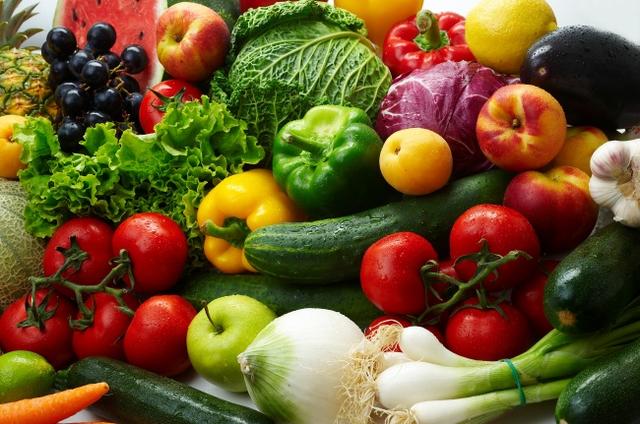
6, to increase food rich in dietary fiber and vitamin C, including coarse grains, vegetables and fruits. Eat some foods with lipid-lowering effect such as onion, garlic, mushroom, fungus, kelp, hawthorn, purple cabbage, light tea, konjac and so on.
7, usually eat light, soft food, it is appropriate to use steaming, stewing, simmering, stir-frying, blanching, stir-frying, warm mixing and other cooking methods, not suitable for frying, deep-frying, stir-frying, oil dripping, baking and other methods.
Patients with cerebral infarction who can do the above points will bring some benefits to their recovery.
Cerebral infarction disease is mostly related to hypertension, high blood pressure, high blood fat and other diseases leading to vascular sclerosis, has a high disability and mortality rate, not only need to be actively treated, but also need to do a good job of dietary care in order to maintain the effect of treatment. So what should patients with cerebral infarction pay attention to in their diet?
First of all, you need to pay attention to the dietary taboos: 1. Avoid fatty meat, animal offal, fish eggs, crabs less peanuts and other foods containing more fat and high cholesterol; do not eat whole milk, cream, egg yolks, fatty pork, fatty mutton, fatty beef, liver, offal, butter, lard, butter, mutton fat. 2. Less sweet drinks, cream cake intake; avoid eating too much sauce, salty dishes, etc. 3. Avoid raw, cold and spicy stimulating foods: such as white wine, spicy hot pot, etc., and hot food such as sheep, dog meat, etc. 4. avoid smoking and drinking: smoke can damage the endothelium of blood vessels, and can cause small blood vessel contraction, lumen narrowing, and thus prone to the formation of thrombosis; drinking alcohol can easily lead to vascular hemorrhage.
Usually pay attention to the diet should be: 1. small amount of meals, to easy to digest and light food, and in the morning, the main meal, to avoid overfilling dinner. 2. to vegetarian diet, it is advisable to eat more beans and their products, not only the protein content and high quality. Soybean oil has a lot of unsaturated fatty acids and also contains lecithin, which is good for the operation of cholesterol. Eat more vegetables, fruits, tomatoes, asparagus, black sesame, fungus, fern and other foods.
Usually need to pay more attention to less work, on the life and living should be regular, not overworked. Keep moderate physical activity and exercise. Maintain emotional stability, comfortable mood, do not be overjoyed, angry, worried and other mental stimuli. Patients who have suffered from cerebral infarction, it is best to review every six months, need to pay attention to the review of blood pressure, blood lipids, blood rheology and other indicators, but also need to pay attention to long-term in accordance with the requirements of the doctor to take medication, can effectively prevent recurrence of cerebral infarction.
Increased fiber intake reduces strokes, especially grain fiber
Increasing fiber intake has many health-promoting effects, including reducing the risk of coronary heart disease, cardiovascular and all-cause mortality, colorectal cancer, stroke and type 2 diabetes. High-fiber diets may prevent coronary heart disease to some extent by controlling cardiovascular risk factors, including lowering insulin levels and blood pressure, as well as improving blood lipids.
High fiber intake was associated with a 38% lower risk of stroke compared to low fiber intake. In addition, grain fiber was more strongly associated with a lower risk than fiber derived from fruits or other foods.
Consuming more fruits and vegetables is effective in preventing strokes
Studies have shown that intake of fruits and vegetables is associated with a lower risk of stroke. The study found that higher levels of fruit and vegetable intake were associated with a lower risk of stroke; patients who consumed 3-5 servings of fruits and vegetables per day and those who consumed more than 5 servings per day had a reduced risk of stroke compared to those who consumed less than 3 servings per day
These vegetables and fruits can be eaten regularly
Studies have found that patients who consume large amounts of cruciferous vegetables (e.g., broccoli, cabbage, cauliflower, Brussels sprouts), leafy greens, citrus fruits, and vitamin C-rich vegetables and fruits have the lowest risk.
Consuming more than six servings of vegetables and fruits did not further reduce the risk of ischemic stroke in patients compared to consuming five to six servings per day.
To consume fresh fruits
A study involving 450,000 people showed that individuals who consumed fresh fruit on a daily basis had a reduced risk of diseases such as cardiovascular death, compared to those who consumed low amounts, or no fresh fruit at all.
There was a dose-response relationship between each of the health outcomes and fresh fruit intake. In addition, fresh fruit intake was associated with lower blood pressure and blood glucose levels.
"The key to cardiovascular and cerebrovascular diseases is "early diagnosis and effective treatment", and the medication is strictly according to the doctor's instructions." Lowering fat and blood pressure" to improve blood viscosity and promote microcirculation. Eat reasonably well, "starvation diet" (6 minutes of fullness per menu), insist on outdoor exercise (brisk walking or jogging for 40 minutes a day), regularly monitor "underlying diseases", adjust medication and treatment when appropriate, and live happily every day.
The first thing that is sought in a cerebral infarction is the inability to reinfarct! The key is that the deposits in the blood vessels can no longer increase while at the same time hopefully dissolving to allow the blood vessels to reopen as freely as possible. It should be a big job for us to work with the body to achieve this goal. First, the selected food chain should not only not increase the deposits but also have the effect of opening up the blood vessels. Secondly, the food chain should be able to make the blood vessels healthier and more elastic. Third, the food chain should also have the function of making each internal organ healthier. The food chain should prevent waste and harmful substances from entering the absorption system. V. The environment and personal behavior must also work together to achieve this goal. There are many ways to achieve these requirements, so do a search on demand.
cerebral infarctionThe occurrence of the disease is associated with many factors, including atherosclerosis, hypertension, hyperlipidemia, hyperglycemia, and smoking, to name a few.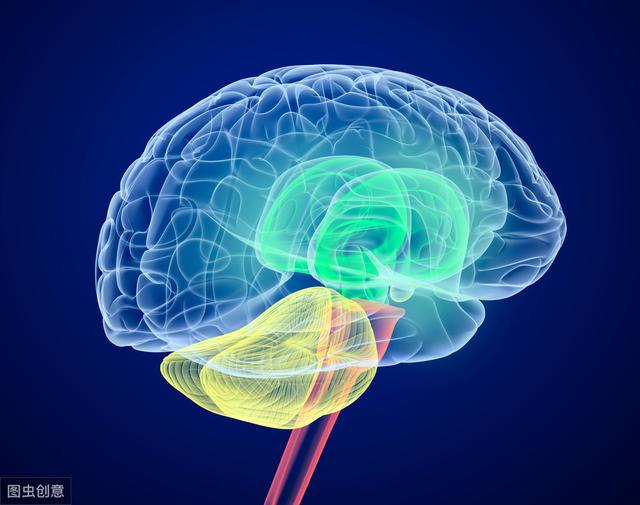
So what do you need to watch out for in terms of diet? Let me say a few things:
The diet of people with cardiovascular disease is based on potassium-rich fruits and vegetables, low-fat dairy products, whole grains rich in edible fiber, and plant-source proteins, with reduced intake of saturated fatty acids and cholesterol.
Control energy intake, reduce total daily calorie intake on the basis of dietary balance, control the intake of high-calorie foods (high-fat foods, sugar-sweetened beverages and alcoholic beverages, etc.), and appropriately control the intake of carbohydrates.
Limit sodium intake, which should be kept below 6g per day.
Refrain from or limit alcohol consumption: Excessive alcohol consumption significantly increases the risk of developing high blood pressure and the risk increases with the amount of alcohol consumed; refraining from or limiting alcohol consumption can lower blood pressure. If alcohol is consumed, it should be in small quantities and low in strength, avoiding highly potent liquors. Daily alcohol intake should not exceed 25g for men and 15g for women.
In addition to dietary aspects:
No smoking: Smoking is an unhealthy behavior that leads to the development of atherosclerosis, one of the main risk factors for blood and cerebrovascular diseases.
Appropriate exercise: regular low and moderate intensity aerobic exercise, reducing sedentary time.
Control your emotions, avoid over-excitement, and work sensibly.
Focus on Health, Focus onDr. Vanilla., thanks for the kudos and feel free to share!
This question and answer are from the site users, does not represent the position of the site, such as infringement, please contact the administrator to delete.